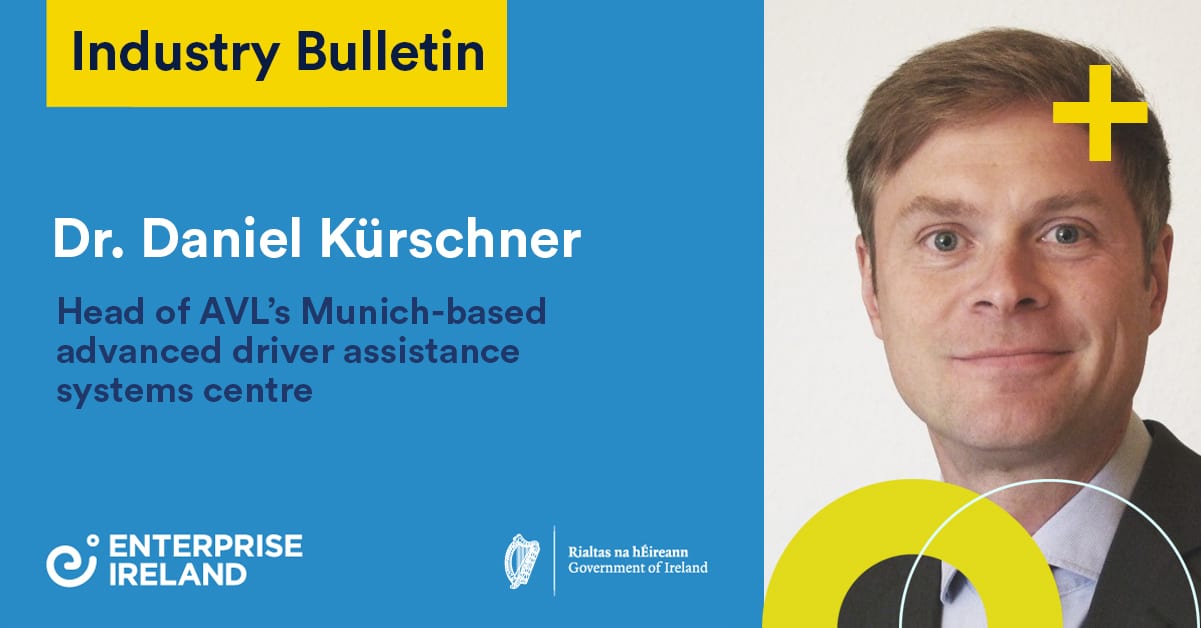 AVL is the world’s largest independent company for the development, simulation and testing of powertrain systems for passenger cars and commercial and industrial vehicles and is directly exposed to the deepest and most rapid business downturn in the history of the automotive industry. Dr. Daniel Kürschner, Head of the Company’s Munich-based advanced driver assistance systems (ADAS) centre, remains optimistic, however.
AVL is the world’s largest independent company for the development, simulation and testing of powertrain systems for passenger cars and commercial and industrial vehicles and is directly exposed to the deepest and most rapid business downturn in the history of the automotive industry. Dr. Daniel Kürschner, Head of the Company’s Munich-based advanced driver assistance systems (ADAS) centre, remains optimistic, however.
He points out that AVL is not a traditional Tier 1 supplier to the industry and is not directly connected to the supply chain. It is therefore also not directly affected by vehicle sales as many other companies.
While some projects are subject to renegotiation and delay, there are positives to the current environment, he notes. “We as a German or European car industry need to see this crisis as an opportunity to rethink our traditional mindset and to focus on more sustainable, future-oriented solutions, following the CASE trends (connectivity, autonomous, sharing/subscription and electrification) and also noting different demands of the younger generations.” says Kürschner. “Car makers would have the time now to catch up on delayed technology developments which they have not focused on over the past decade. A lot of companies worldwide, particularly innovative start-ups, have technologies available that could be combined with those of the traditional corporations in order to speed up launching competitive products at the end.”
AVL is already moving into new areas such as e-mobility, fuel cells and ADAS. “We see a big opportunity to grow within these new business fields and it would be great to see a green economy emerge in the near future,” he adds.
As a direct impact of Covid-19, also AVL has successfully switched to remote working. “Like for others, it has affected us in the sense that people can’t come together in person , but that we are currently working in home offices but, luckily, our teams are experienced in digitalisation and web-based communication so that we can keep the productivity levels very high.”
The downstream effect of the industry downturn is being felt, however. “The car industry in general is very cautious at the moment, so capital expenditure is on hold and also AVL – as one player in the industry – has changed over to short-term work,” Kürschner explains. “As a technology and engineering provider we are dependent on the automotive industry reopening, and we will continue to provide our technological expertise as best as possible, trying to overcome all hurdles resulting from the crisis.”
Addressing future market demands
Many of the challenges the industry is currently facing, already existed before the current crisis, he adds. “The current situation just accelerates the formation of fundamental structural changes within the market. The structural changes basically result from the green trend and because younger generations are demanding greener and more sustainable yet still safe and superior technology. However, they are still willing to spend money for this, so the industry must adapt to these changing circumstances and take measures to understand and accept future market demands.”
This superior technology includes ADAS.
“More and more customers will expect to find ADAS and autonomous driving features within their cars,” says Kürschner. “Moreover, autonomous driving is providing the technical basis for future concepts such as mobility as a service.”
He also mentions the upcoming development of the centralised electronic control unit. “This has a lot of benefits for maintenance and remote updates. It allows the provider to keep the product updated all the time, and will also feature active safety and cybersecurity functions.”
Innovation will continue to play a major role in automotive industry, he believes. “As we had already seen in the e-mobility trend starting over 10 years ago, today, also ADAS and newer trends will cause shifting supply chains, with innovative solutions looking to alter and take over from traditional fields within the industry.”
He takes a positive view of the industry’s future. “Looking at the business perspective, the focus will be on measures over the near term to keep the industry and economy running, which is partially a government responsibility, but also the companies themselves need to sharpen their product portfolio, ready to keep up with the latest customer demands. People will continue to need mobility despite the deep crisis and despite the current uncertainty and therefore, for now I am not concerned that people will stop buying cars. However, in the medium and long term, I would focus on the technologies following the CASE trends in order to maintain our global competitiveness within the future car industry.”


